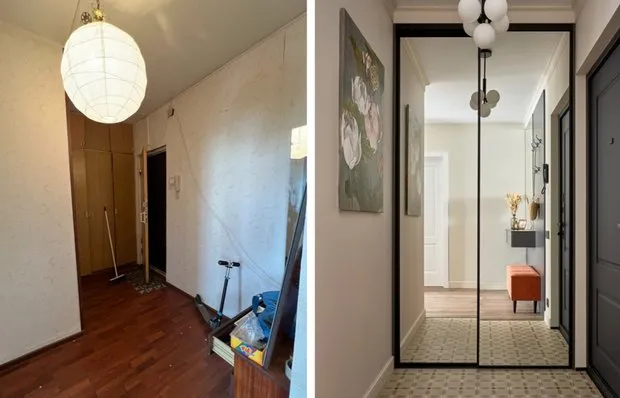Neighbors Above Flooded the Apartment — Insurance Rejected Claim: Lawyers Explain the Loop Hole
Don't let yourself be deceived — the money you regularly pay for insurance should work for you, not enrich the insurance company
Important: This article is for informational purposes only and does not constitute legal advice. Specific provisions of insurance law may vary depending on the type of insurance and contract terms. In case of a disputed situation, it is recommended to consult with a qualified lawyer.
A Moscow resident Elena K. thought she was protected from all troubles: her apartment was insured, documents were in order, and premiums had been paid regularly for three years. But when a pipe burst and flooded three floors, the insurance company sent a refusal. "The incident was not recognized as an insured event" — just one line destroyed all plans for compensation of 800 thousand rubles. A familiar story? Unfortunately, such refusals are becoming more frequent. Let's see how insurers bypass their obligations and what to do about it.
Main points from the article:
- Insurance companies deny 15-20% of flooding cases using formal reasons;
- The most common reason for refusal is "breach of notification conditions" (most insurers set a 3-5 working day deadline);
- The act of flooding should be drawn up by the management company as quickly as possible;
- Repairs cannot begin before an expert inspection — this can be a reason for denial of payment;
- The Financial Ombudsman considers complaints free of charge within 15 working days;
- In court, you can claim a penalty of 50% of the claimed amount in case of unlawful refusal.
Trap #1: "Not reported on time"
The most popular reason for insurers to deny claims is non-compliance with reporting deadlines. In most contracts, it's stipulated that the insured event must be reported within 3-5 working days. Sounds reasonable, but in practice it becomes a trap.
Imagine: on Saturday evening your pipe bursts. The management company dispatcher is not answering, the plumber will arrive only Monday, and the insurance hotline works until 18:00. In the end, you call the insurer only on Wednesday — and get a refusal for "contract breach".
Many insurers deliberately set strict deadlines, knowing that contacting them on weekends and holidays is practically impossible. This gray scheme works thanks to clients' carelessness when signing the contract.
The loophole: In the agreement, pay attention to the phrase "within the first working day" instead of rigid time limits. This is a significant difference. If you have already been refused — demand proof that you had the technical ability to contact the insurer at the specified time.
Trap #2: Act was "drawn up incorrectly"
The management company drew up the act of flooding, everyone signed it, and damage was confirmed. It seemed like a done deal. But insurers find fault even here.
"The exact cause of the leak is not stated in the act", "the guilty party's signature is missing", "no seal of the management company" — any formal error becomes a reason for refusal. In Moscow, there is a special order establishing the general procedure for actions during emergencies (the act must be drawn up within 3 days), but not all management companies can handle this task.
Recently, an insurer refused a client because the act said "water damage", while only "flooding" was mentioned in the insurance contract. Formally, these are different concepts, although the essence is the same.
The loophole: If the management company delays in drawing up an act, send a written notice via Telegram with acknowledgment of receipt at the legal address. If they refuse to draw up an act — do it yourself with neighbors as witnesses. Such an act has equal legal force.
Trap #3: "You already started repairs"
This is the favorite excuse of insurers: "It's impossible to determine actual damage since restoration work has already begun". Even if you just wiped the water off the floor and removed soaked wallpaper, this can be grounds for denial.
Insurers deliberately delay expert visits by 2-3 weeks, hoping the client won't hold out and will start repairs. After that, proving the actual damage becomes almost impossible.
The loophole: Make detailed photo and video documentation every day until the expert arrives. All work to eliminate consequences (water removal, drying) should only be done after written consent from the insurer. If the expert does not arrive for more than a week — send a complaint demanding acceleration of the process.
Trap #4: "Your fault in the incident"
Insurers love to find a "guilty party" among their own clients. "Forgot to turn off the tap", "didn't monitor plumbing condition", "violated operating rules" — the list of claims can be endless.
Especially often, elderly people are blamed: allegedly they forgot to shut off the water or failed to notice a leak in time. Proving otherwise can be difficult, especially without witnesses.
The loophole: In disputed situations, demand a technical investigation at the insurer's expense. If the expert confirms your innocence, all costs should be reimbursed by the insurance company. In case of refusal — order an independent expert yourself and include its cost in your lawsuit.
Trap #5: Underestimating the damage amount
Even if an insurer agrees to pay compensation, the sum may seem modest. "Depreciation", "natural wear and tear", "market value of used goods" — these terms allow reducing payouts by 2-3 times.
For example, for damaged parquet that cost 100 thousand rubles, they offer to pay only 30 thousand — with three years of "depreciation". Damaged furniture is calculated at the prices of discount stores.
The loophole: In the contract, look for a clause about "insurance at replacement cost" rather than "actual cash value". When assessing damage, insist on calculating based on prices of new similar items. Depreciation applies only to appliances, not finishing materials.

Design: Kristina Selyutina
What to do if insurance denied your claim?
Received a refusal? Don't despair too quickly. According to statistics, a significant portion of complaints against insurers are upheld in favor of the victim.
Step 1: Pre-litigation claim
The insurer has 10 days to review a written claim. Specify specific contract violations and require a motivated response with references to insurance terms.
Step 2: Financial Ombudsman
This is a free alternative to court for disputes up to 500 thousand rubles. Application is submitted online at finombudsman.ru. The review period is 15 working days.
Appealing to the Financial Ombudsman is a mandatory step before going to court (except in certain cases). The main disadvantage: the ombudsman does not always award full compensation and does not impose penalties for consumer rights violations.
Step 3: Court
In case of unlawful refusal, the court can impose a penalty on the insurer equal to 50% of the amount awarded by the court in favor of the consumer. In addition, you can demand:
- The main damage amount;
- Compensation for moral harm;
- Court expenses.
In the complaint, always include a request for penalty under Article 13 of the Consumer Protection Law. This makes insurers take the case more seriously.
How to protect yourself in advance
When choosing an insurer:
- Check the company's reliability rating;
- Read reviews about payouts, not just sales of policies;
- Pay attention to the refusal rate — it should not exceed 10-15%.
When signing a contract:
- Carefully read the insurance terms, especially sections on exclusions;
- Choose policies with minimal reporting time limits;
- Insist on insurance at replacement cost.
When an insured event occurs:
- Call the insurer immediately, even if it's night or a weekend;
- Document everything with photos and videos before starting any work;
- Maintain written correspondence with the management company and insurer.
Remember: an insurance company is a commercial organization that profits from the difference between collected premiums and payouts. Each refusal increases its profit. But knowing your rights and properly preparing documents can turn the situation in your favor.
Need a renovation specialist?
Find verified professionals for any repair or construction job. Post your request and get offers from local experts.
You may also like
More articles:
 China Town: Why the Main Trading Quarter Was Named After Celestial Kingdom
China Town: Why the Main Trading Quarter Was Named After Celestial Kingdom Where to Place a Bed in a Small Studio: 5 Best Solutions
Where to Place a Bed in a Small Studio: 5 Best Solutions 5 Beauty Secrets of Audrey Hepburn That Still Work Today
5 Beauty Secrets of Audrey Hepburn That Still Work Today Invisible Cabinet: Can You Find It? 5 Cool Ideas
Invisible Cabinet: Can You Find It? 5 Cool Ideas Breakfast at Tiffany's: What the Cult Film Concealed Behind the Scenes
Breakfast at Tiffany's: What the Cult Film Concealed Behind the Scenes Before and After: From a Dull Hallway in a Panel House to a Stylish Functional Interior
Before and After: From a Dull Hallway in a Panel House to a Stylish Functional Interior Hamovniki: How a Noble District Became the Most Expensive Area in the Capital
Hamovniki: How a Noble District Became the Most Expensive Area in the Capital 9 Cool Functional Solutions for Small Apartments
9 Cool Functional Solutions for Small Apartments